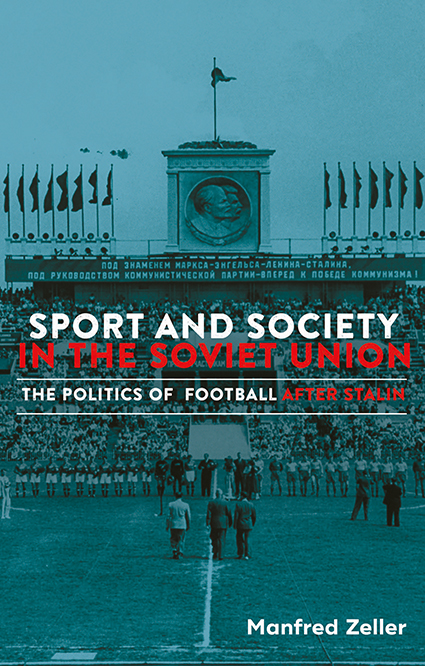Odesa-Tage 2025
Kolloquiumsvortrag
18:15 Uhr, / Zoom
Svetlana Erpyleva (Bremen) | When the War Is Next Door. How the Residents of a Russian Borderline Region Experience and Interpret the Russo -Ukrainian War
Buchvorstellung
18:00 Uhr
Annette Schuhmann
Wir sind anders! Wie die DDR Frauen bis heute prägt.
18:00 Uhr
An Evening with Maksym Butkevych
Europapunkt
Wissenswertes

Sport and Society in the Soviet Union: The Politics of Football after Stalin
I.B. Tauris 2018, ISBN 978-5-8243-2244-6
Following Stalin's death in 1953, association football clubs, as well as the informal supporter groups and communities which developed around them, were an important way for the diverse citizens of the multinational Soviet Union to express, negotiate and develop their identities, both on individual and collective levels. Manfred Zeller draws on extensive original research in Russian and Ukrainian archives, as well as interviews with spectators, 'hardcore ultras' and hooligans from the Caucasus to Central Asia, to shed new light onto this phenomenon covering the period from the height of Stalin's terror (the 1930s) to the Soviet Union's collapse (1991). Across events as diverse as the Soviet Union's footballing triumph over the German world champions in 1955 and the Luzhniki stadium disaster in 1982, Zeller explores the ways in which people, against the backdrop of totalitarianism, articulated feelings of alienation and fostered a sense of community through sport. In the process, he provides a unique 'bottom-up' reappraisal of Soviet history, culture and politics, as seen through the eyes of supporters and spectators.
This is an important contribution to research on Soviet culture after Stalin, the history of sport and contemporary debates on antagonism in the post-Soviet world.
Länder-Analysen
» Länder-Analysen
» Eastern Europe - Analytical Digests
Discuss Data
Archiving, sharing and discussing research data on Eastern Europe, South Caucasus and Central AsiaOnline-Dossiers zu
» Erdgashandel
» Hier spricht das Archiv
» Russian street art against war
» Dissens in der UdSSR
» Duma-Debatten
» 20 Jahre Putin
» Protest in Russland
» Annexion der Krim
» sowjetischem Truppenabzug aus der DDR
» Mauerfall 1989

